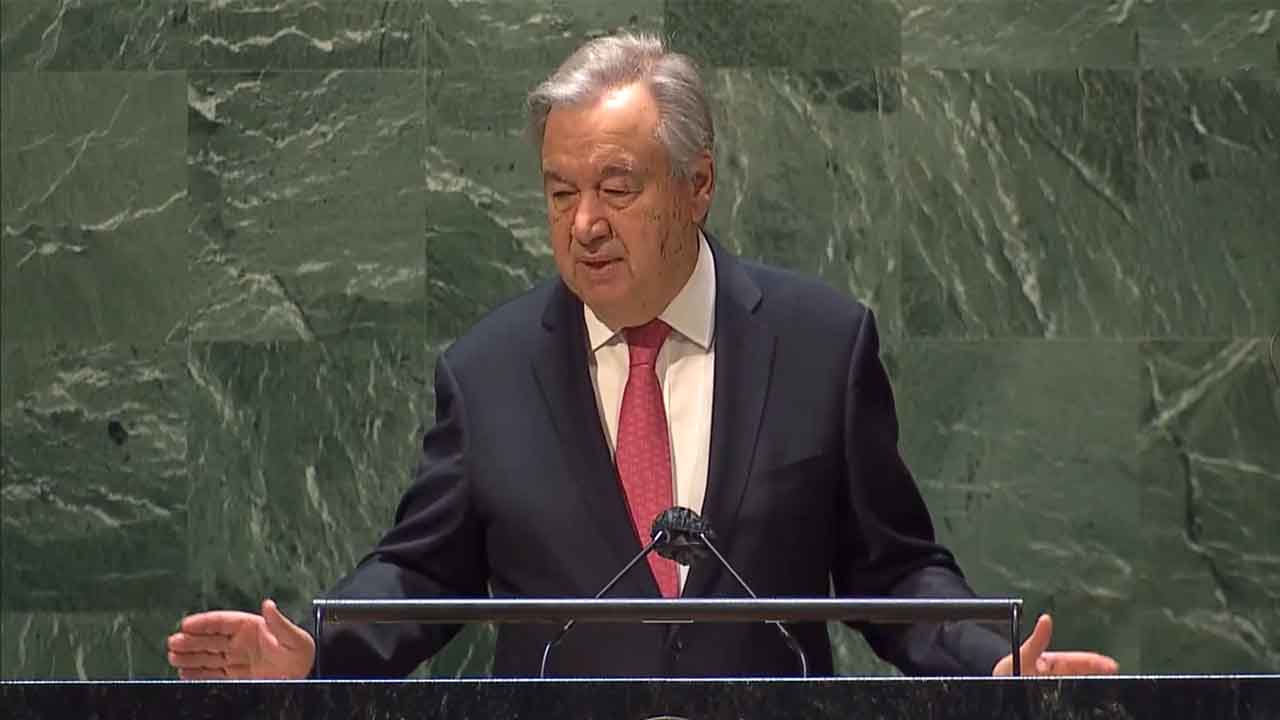Deepening inequality, rising inflation, the climate crisis, loss of biodiversity, conflict, political problems, the misuse of technology to spread lies – the UN Secretary-General believes that the situation has reached a point where humanity must act in a state of emergency.
“At the root of all these problems are failures in international governance,” António Guterres said. “Many models of multistakeholder collaboration, from global health to digital technologies, are outdated and ineffective. They fail to protect the public institutions designed to support the well-being of mankind in various areas, from the global economy to the financial system and the health of the planet.” The head of the UN recalled his policy document, Our Common Agenda, in which he touches on these and other pressing issues.
“We face a five-alarm global fire that requires the full mobilisation of all countries,” he said, referring to the raging COVID-19 pandemic, a morally bankrupt global financial system, the climate crisis, lawlessness in cyberspace, and diminished peace and security.
Covid-19
Stopping coronavirus spread must be at the top of the agenda everywhere, said António Guterres, calling for countries to “go into emergency mode in the Covid-19 battle.”
“Our actions must be grounded in science and common sense,” he said. “The science is clear: Vaccines work. Vaccines save lives.” Yet, vaccine inequity persists despite a global strategy to inoculate 40 per cent of all people by the end of last year and 70 per cent by the middle of this year.
Global Financial System
The second item in the priorities of the UN Secretary-General is the reform of the global financial system. He believes that today this system is “morally bankrupt” – it favours the rich and punishes the poor. As a result, poorer countries are experiencing their slowest growth in a generation, while middle-income nations are denied debt relief despite surging poverty levels. Most of the world’s poor are women and girls, who are paying a high price in lost healthcare, education and jobs, the UN chief said.
Climate Crisis
The third priority is counteracting the climate crisis. The UN is striving to keep the task of keeping warming within 1.5 degrees Celsius on the agenda. “Today, we are far from achieving it,” the UN Secretary-General warned. “And the consequences are the most devastating.” António Guterres recalled that in 2020, due to weather disasters, about 30 million people were forced to leave their homes, and residents of small islands and least developed states are “one step away from disaster.”
To prevent it, it is necessary to reduce emissions by 45 percent by 2030, and achieve carbon neutrality by mid-century, when the amount of CO2 emitted does not exceed the amount absorbed by nature, in particular forests and oceans. In this case, greenhouse gases will not enter the atmosphere.
Technology and Cyberspace
While technology offers extraordinary possibilities for humanity, António Guterres warned that “growing digital chaos is benefiting the most destructive forces and denying opportunities to ordinary people.”
He spoke of the need to both expand internet access to the nearly three billion people still offline, and to address risks such as data misuse, misinformation and cyber-crime.
“Our personal information is being exploited to control or manipulate us, change our behaviours, violate our human rights, and undermine democratic institutions. Our choices are taken away from us without us even knowing it,” he said.
Peace and Security
The fifth item on the UN Secretary-General’s priorities for 2022 is peace and security. Here again, countries must act in the face of challenges such as the assault on human rights and rule of law; rising populism, racism and extremism; and escalating humanitarian crises, fuelled by climate change.
António Guterres underlined the UN’s commitment to peace, pledging to spare no effort in mobilising international action in numerous areas across the globe.





























